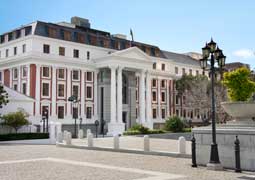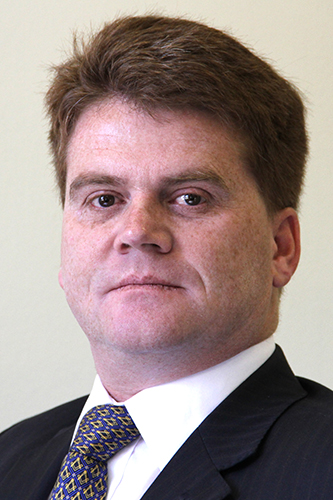
Parliament – 13 September 2019: National Assembly Speaker Thandi Modise, says Parliamentarians of the 6th term, must unite in fighting corruption, improving oversight and ensuring citizens enjoy a better quality of life.
Addressing a strategic planning session of the National Assembly held in the Parliamentary Precinct in Cape Town which ended last night 12 September 2019, Speaker Modise, called for an honest reflection on Parliament’s performance and its contribution in attaining the National Development Plan goals. The Speaker tabulated several areas of improvement for the 6thParliament, which included:
- Enhanced Members competencies in drafting legislation and using Information and Communication Technologies to enhance their research capabilities for better oversight;
- Better adoption, accounting for and enforcing a series of conventions and resolutions of multilateral parliamentary institutions such as the Inter-Parliamentary Union, aimed at improving governance and a better life for citizens;
- Beefing up the capacity and competencies of the administration of Parliament in areas of budget oversight, financial management and the role of institutions supporting democracy; and
- More equitable budget and resource allocations to both houses of Parliament, the National Assembly and the National Council of Provinces, to enable their capacity to carry out their respective responsibilities better.
Various members of political parties supported the Speaker and also raised a range of other factors and priority areas to be pursued by the 6th Parliament to help build a real people’s parliament. These included asserting Parliament’s role in a manner that reduces instances of people resorting to courts and other means of intervention, better coordination of the NA and NCOP work and engagements with communities, tracking of Parliamentary committee findings and resolutions to ensure full accountability of departments, and stepping Parliament’s consequence management including changing budgets and naming-and-shaming of poorly performing Executive Members when various avenues have been exhausted.
The Acting Secretary of Parliament Ms Baby Tyawa led her Executive Management in presenting on the status of various elements of the administration including the re-engineering of the structure to build better quality and shared services in support of Members of Parliament, institutional performance and plans for execution during the sixth Parliament. Parliament’s improved performance from 46% in 2015 to 78% of the set targets in 2018/19 financial year, improved awareness of Parliament from 9,75% to 27% in three years, and citizen know-how to participate in Parliamentary processes that more doubled from 7% to 15% since 2014.
The reports presented to Members of the National Assembly to take into account in planning its programme for 2019 to 2014 included:
- Achievement of five consecutive clean audits of Parliament by the Auditor General of South Africa;
- The decline of focus on making legislation from as high as 137 bills in 1998 to 23 in 2018, while more focus is shifting to strengthening oversight to effective track implementation as well as on assessing the impact of legislation in changing lives of people;
- Growing Parliamentary diplomacy and the necessity of enhancing Parliament’s contributions in international efforts to advance development including free trade agreements and regional and other blocks such as BRICS, SADC and the Pan Africa Parliament with clear targets for the 6th Parliament; and
- Declining net budget allocation to Parliament (Budget Vote 2) since the beginning of the 4th Parliament.
The meeting also flagged a number of challenges that should be effectively addressed during the 6th Parliament, which include, improved public education and public participation in processes of Parliament and its committees, appropriate funding of Parliament, tracking and acting on petitions, as well as address information asymmetry between the executive and the legislature and also within various segments of Parliament.
National Assembly’s attention was also drawn to trends that show a worsening impact on key National Development Plan Indicators such as poverty that grew to 55%, unemployment that reached 29% and inequality that remains resilient at 0.68 on the Gini Coefficient measure.
The NA session will meet again after the draft report is completed and make resolutions on what worked and should be enhanced, what did not work and should be dropped and what new interventions should be introduced during the 6th Parliament to affirm its roles, enhance its contributions to the broader social transformation and development in South Africa. The report will then be consolidated with the outcome of the NCOP session to produce one document that will be adopted by a final joint planning session of the NA and NCOP on a date yet to be announced.
Issued by Parliamentary of RSA
Enquiries: Moloto Mothapo – 082 370 6930

